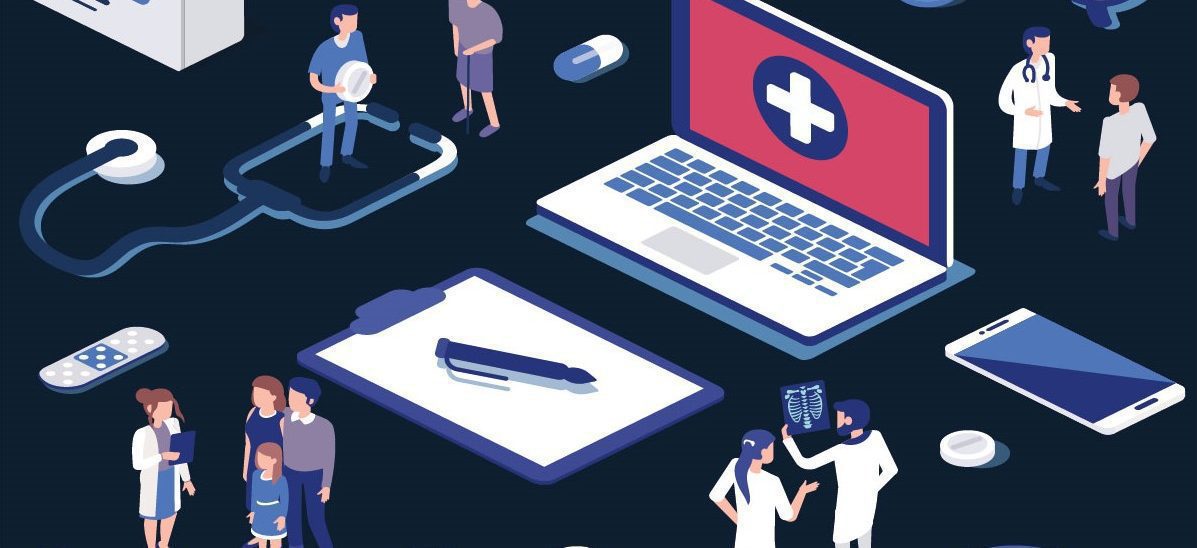Google Cloud announces healthcare Data Engine to enable interoperability in healthcare

The solution seeks to harmonise longitudinal patient records for better care, research, and operations.
Google Cloud has announced the private preview of Healthcare Data Engine, an end-to-end solution for healthcare and life sciences organisations that harmonises data from multiple sources, including medical records, claims, clinical trials, and research data. Healthcare Data Engine helps operational leaders, researchers, and clinicians gain real-time, holistic views of longitudinal patient records and enable advanced analytics and AI in a secure, compliant, and scalable cloud environment.
According to recent Google Cloud-commissioned research conducted by The Harris Poll, nearly nine in 10 physicians (87%) say data interoperability should be a priority at their healthcare organisations right now, and 95% of physicians agree that access to more complete patient records helps them make diagnoses more quickly and accurately. In addition, most physicians (90%) say they would be able to provide more personalised care for their patients if they could reduce time reviewing or updating patient records by just 5%.
Building on and extending the core capabilities of the Google Cloud Healthcare API, Healthcare Data Engine makes healthcare data more useful by enabling an interoperable, longitudinal record of patient data and providing clinical insights in FHIR format, the healthcare industry standard. This facilitates innovation and interoperability, helping healthcare and life sciences organisations make better real-time decisions—whether it is around resource utilisation, optimising clinical trials, accelerating research, identifying high-risk patients, reducing physician burnout, or other critical needs.
“As we are keenly aware from the pandemic, access to the right information at the right time, is critical to saving lives,” said Joe Corkery M.D., Director of Product Management, Google Cloud. “We built Healthcare Data Engine to make it easier for healthcare and life sciences organisations to bring together their data silos to innovate and improve health outcomes.”
Healthcare Data Engine can map more than 90% of HL7v2 messages to FHIR—such as medication orders or patient updates—across leading EHRs out-of-the-box. This helps customers get up-and-running quickly and avoids the need to create custom tooling or services to translate between data schemas. Healthcare Data Engine also brings the power of Google BigQuery’s analytics and artificial intelligence to the healthcare industry, enabling organisations to process and visualise petabytes of their own patient data, allowing healthcare systems to take a more holistic view of patients in their surrounding communities and improve overall population health.
Customers Already Benefiting from Healthcare Data Engine
Mayo Clinic has been working with Google Cloud to bring data in from disparate sources, harmonise it to FHIR format, and analyse it in BiqQuery. Automating this process means what used to take weeks can be done in an hour, enabling Mayo Clinic’s experts to now focus on solving critical problems in health rather than managing IT resources. Lessons learned from this work have informed Healthcare Data Engine.
“We were hitting a wall with our ability to innovate on-prem. By moving to the cloud we’re able to build tools more easily, at scale, in a way that takes advantage of technological advancements in security and privacy to remain at the forefront in data protection,” said Jim Buntrock, Vice Chair of Information Technology at Mayo Clinic. “There are so many applications of this. For example, building a ‘heads up display’ for the ICU—where moments matter—to help care teams direct their attention when and where it’s needed most. From creating better ways to care for patients remotely even after they leave the hospital to making it easier for patients to interact with us via mobile app, we’re working alongside Google Cloud to build a platform for healthcare transformation.”
Healthcare Data Engine is being used today by healthcare organisations such as Indiana University Health.
Availability and Partners
Healthcare Data Engine is now available in private preview. Implementation partners Deloitte, Maven Wave, Quantiphi, and SADA are ready to help healthcare and life science organisations deploy Healthcare Data Engine at scale. In addition, ISV partners such as Mathematica and others are deploying novel applications integrated with Healthcare Data Engine.
“With the accelerating transition to value-based care, providers and health plans need timely, actionable information about patients’ gaps in care, particularly in patients with chronic diseases where information often resides across different facilities and is hard to follow over time,” said Matt Gillingham, Vice President and CTO of Mathematica Health Practice. “Enabling a longitudinal patient record across the health system network in near real-time allows gaps in care to be identified and addressed, improving patient experiences and outcomes.”
READ MORE:
- Scaleup Spotlight: Climeworks is the key to fighting climate change
- How Wi-Fi6 will optimise hybrid working
- Which European countries have the best and worst cybersecurity?
- McAfee: How to make telehealth safer for a more convenient life online
About Google Cloud
Google Cloud accelerates organisations’ ability to digitally transform their business with the best infrastructure, platform, industry solutions and expertise. We deliver enterprise-grade cloud solutions that leverage Google’s cutting-edge technology to help companies operate more efficiently and adapt to changing needs, giving customers a foundation for the future. Customers in more than 200 countries and territories turn to Google Cloud as their trusted partner to solve their most critical business problems.
For more news from Top Business Tech, don’t forget to subscribe to our daily bulletin!
